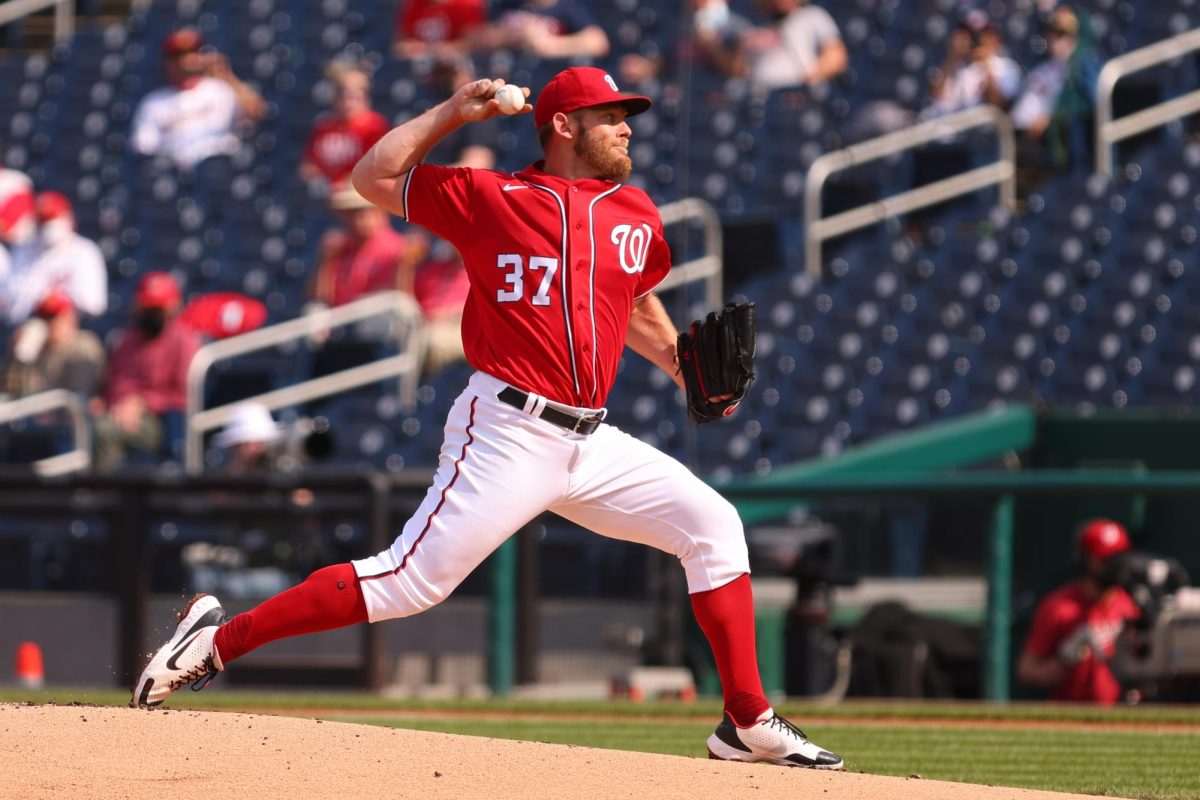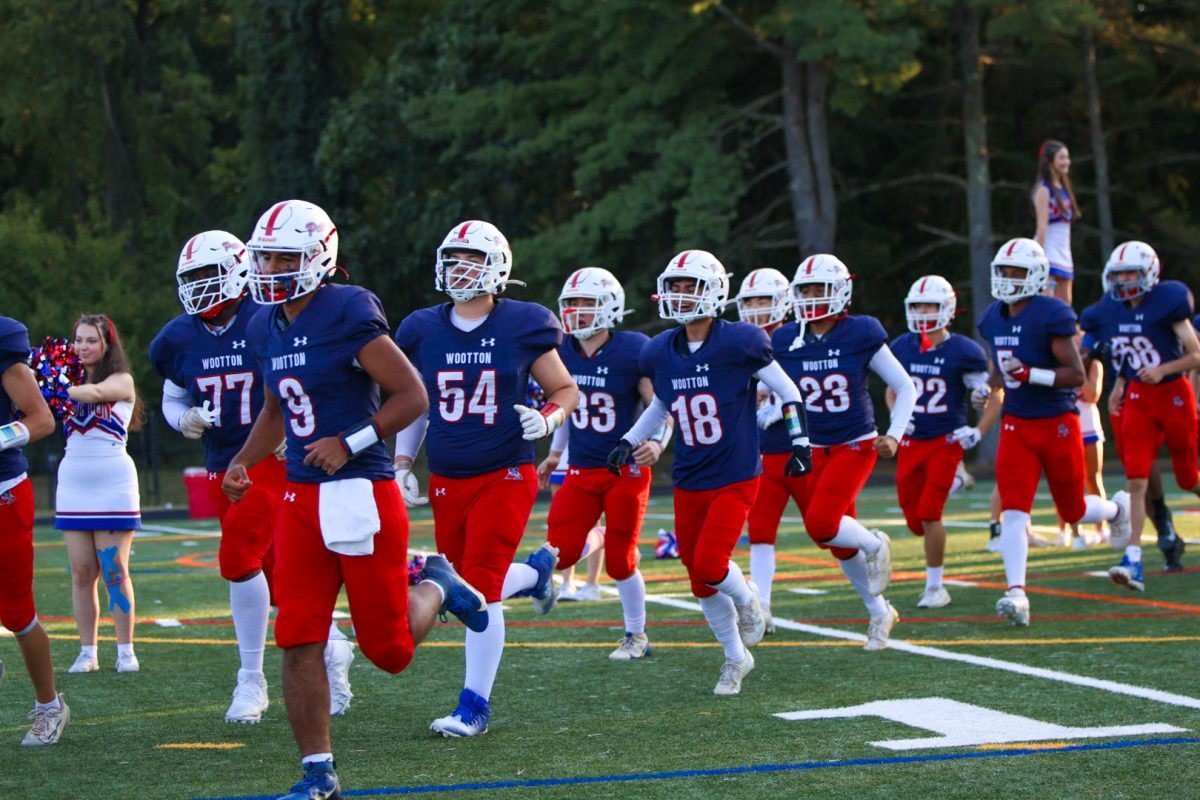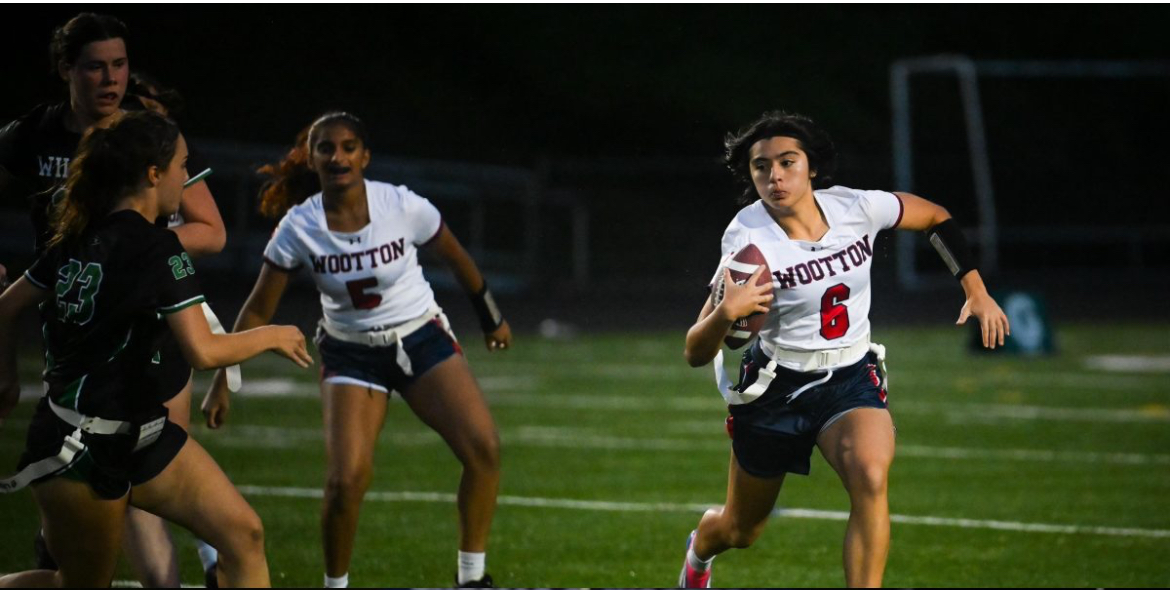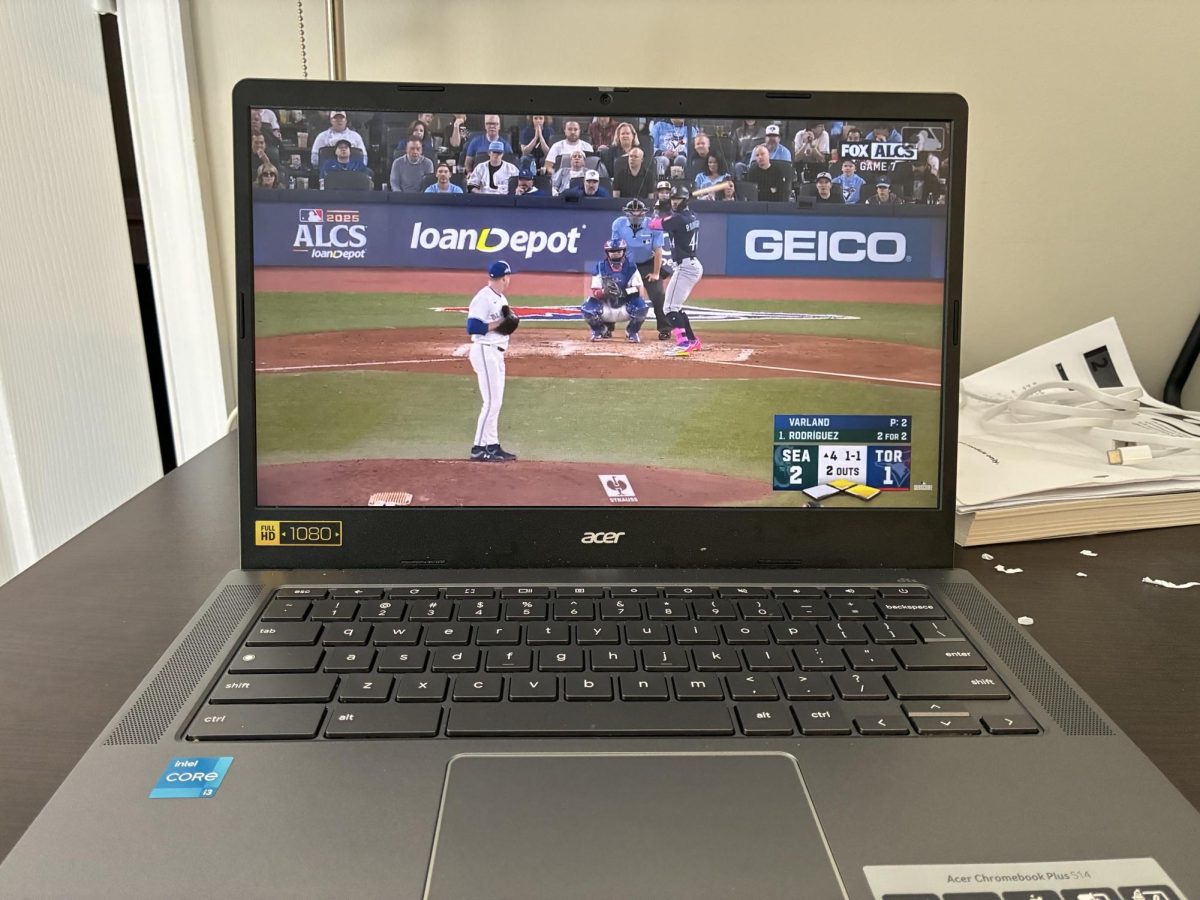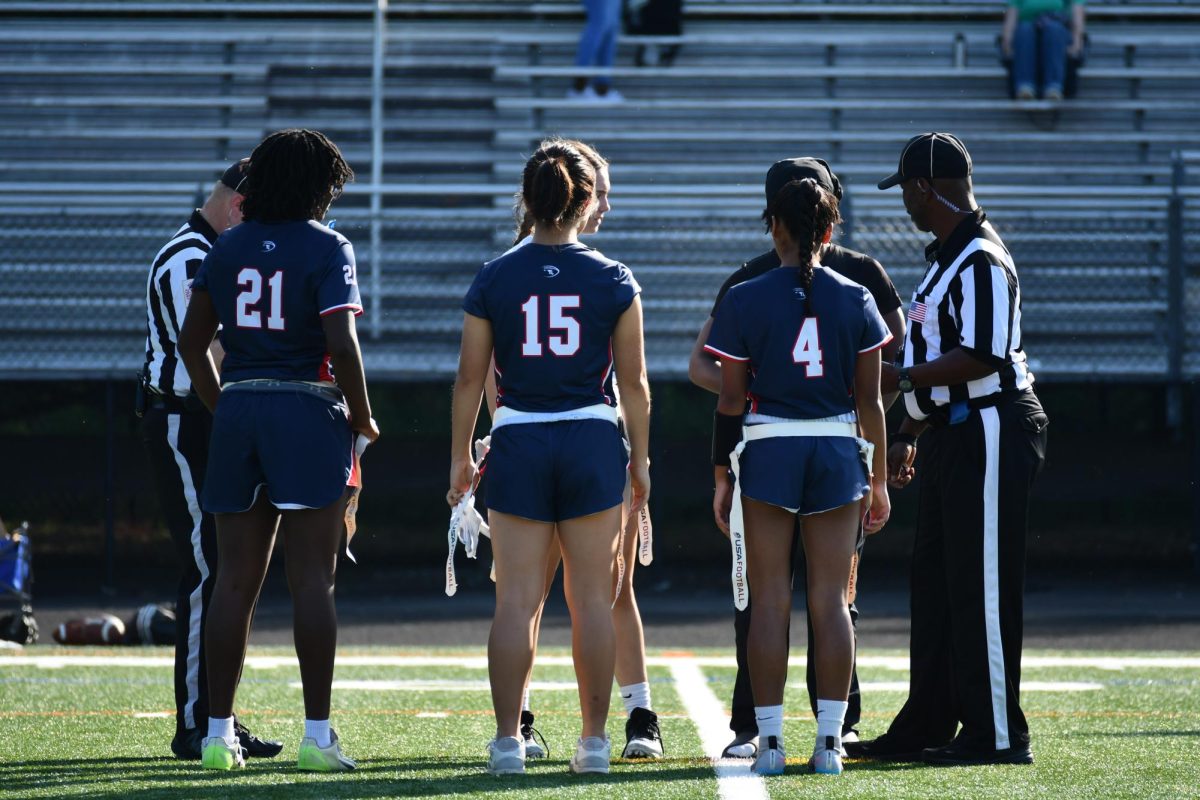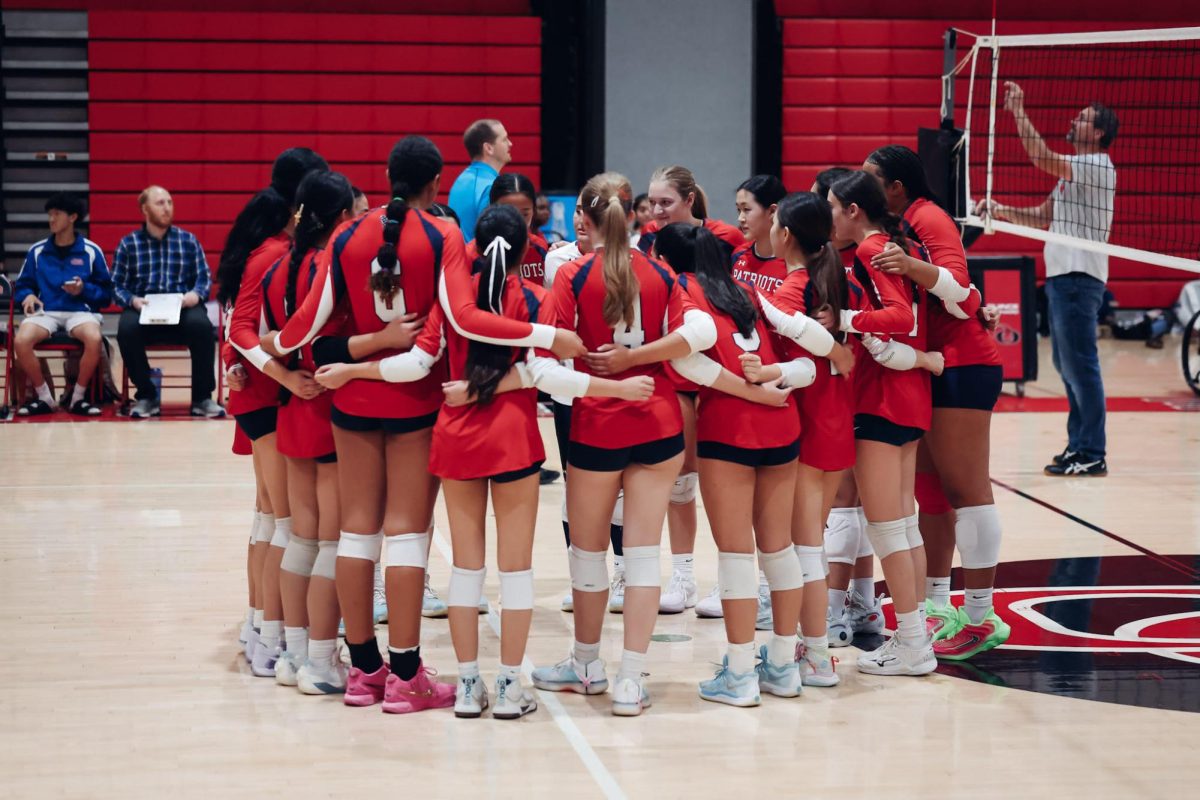American professional sports are currently struggling, as leagues tackle problems like a drop in quality, entertainment value and player performance. However, one sport stands out for still delivering a solid product: baseball.
The National Football League (NFL) is facing two major problems: a decline in the quality of play and growing concerns about the integrity of its games. The NFL has partnered with sports betting companies such as Bet MGM, FanDuel and DraftKings, which has raised ethical questions.
A prime example of this came during the Minnesota Vikings vs. Los Angeles Rams game on Oct. 24, when multiple referees failed to throw a flag on an obvious face mask penalty, a decision that had a direct impact on the game’s outcome. Whether this was due to incompetent referees or outside influences, incidents like these make the league seem untrustworthy.
On the field, quarterbacks have failed to perform at the level fans expect. In the Rams vs. Dolphins game on Nov. 11, where Matthew Stafford threw nearly 50 passes for under 300 yards, and Tua Tagovailoa played through concussion-like symptoms, the lack of polished quarterback play was alarming.
The NFL’s Week 10 was filled with unwatchable games. The Giants vs Panthers, played in Germany was especially challenging to watch. The Saints vs. Falcons game featured horrible qualities of play, as well as the Broncos vs. Chiefs game allowing the Chiefs to be handed another game where they played terribly, and a blocked field goal wins the game for them. The Eagles vs. Cowboys game was low quality because receivers struggled with being able to see the balls thrown at them, in part due to Cowboys owner Jerry Jones building a $2 billion stadium without accounting for the position of the sun. The NFL is filled with sup-par teams and this season even the good teams aren’t fun to watch half the time. So, while the NFL still draws big audiences, the games themselves often fail to live up to the hype.
The National Basketball Association (NBA) is faced with problems stemming from the league becoming less competitive and declining player effort. The storyline to start the season was the extravaganza of Bronny James, a player who is in the league solely due to nepotism, even though he was not ready to compete at the professional level. Meanwhile, the NBA has decided to expand the playoff pool by introducing the NBA Cup, making the regular season less meaningful.
Analytics have steered the game into 3-point shooting at ridiculous volumes, where teams continue to shoot them even when they aren’t making them on that given night. This has resulted in a less physical game, rather than a complete, exciting one. Players don’t seem invested in building rivalries or playing defense. Few elite teams are actually in the running for the championship each year leading to the league’s overall competitiveness continuing to decline.
Hockey, despite its potential to have a massive growth in popularity, is stuck due to its own set of cultural and accessibility issues. As a sport that requires more financial investment to play than others, it often caters to a more privileged demographic. This has created a culture of entitlement and exclusivity which the National Hockey League (NHL) has done nothing to combat. The NHL’s history of issues such as prescription drug addiction, team abuse and sexual assault has continued to haunt the league and obstruct its growth.
This overshadows fast-paced, skillful and thrilling hockey, especially during the playoffs. Therefore, the NHL’s challenge is not in the game itself but in overcoming these systematic issues within the league and making the sport more accessible to a broader audience. If these challenges are addressed, the NHL could see an increase in viewership and popularity.
Then there’s Major League Baseball (MLB), which is the only sport still holding strong right now. While it has also been impacted by the rise of analytics-driven strategies that have focused on home runs, walks and strikeouts, the game still offers a relatively high level of competition. The MLB doesn’t have a salary cap, but there is a tax if teams spend over a certain amount on their players. This year’s playoffs, which featured teams from the top-spending Dodgers and Yankees to the smaller-budget Orioles and Royals, demonstrated that baseball can still produce exciting, unpredictable outcomes.
This contrasts with the NFL and NBA, where higher payrolls and superstar players tend to dictate team success. In baseball strategic decisions like strong player development, scouting and smart trades lead to surprising outcomes, such as unexpected playoff appearances by teams with fewer financial resources.
Even though the analytics-driven approach can make games feel predictable, baseball’s overall unpredictability keeps fans engaged. This unpredictability is a key strength of the MLB, showing that competitive balance is doable even without a salary cap. The MLB’s challenges pale in comparison to those facing the NFL, NBA and NHL, and while it’s not perfect, baseball remains the best product of American professional sports today.
In the end, American professional sports are at a crossroads. The NFL, NBA and NHL each face significant issues affecting the quality of play and the integrity of their leagues. Meanwhile, MLB continues to offer a competitive and engaging product, despite its flaws. If the other leagues can address their problems and regain a sense of integrity and excitement, they could return to their former glory. Until then, baseball is the standout, proving that it is still possible to deliver the best product with the right balance of competition and strategy.


